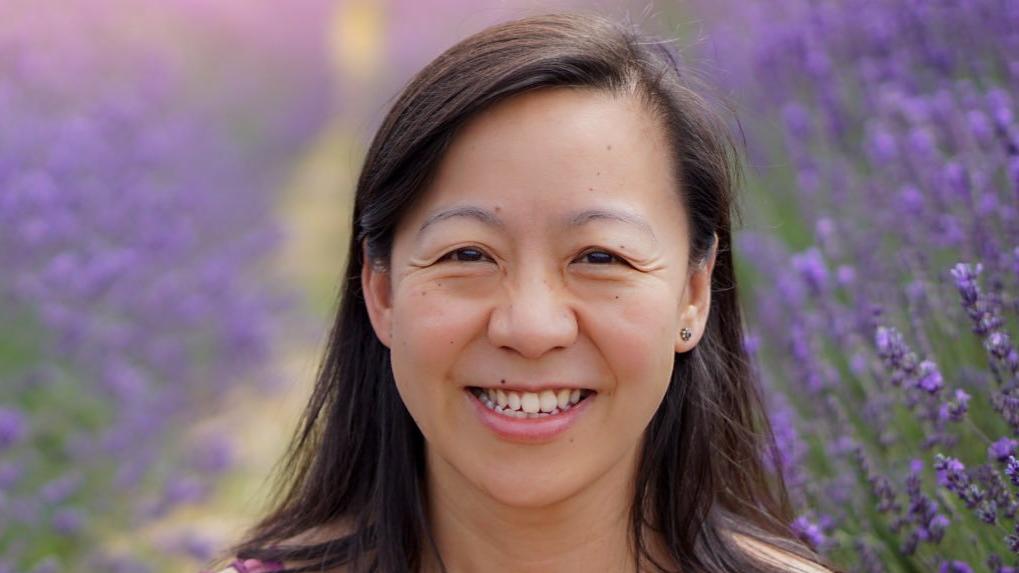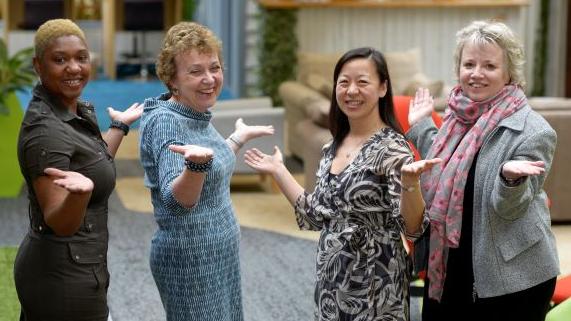
Diversity has always been important to me. In my corporate career in banking, it was always at the forefront of people’s minds because diversity is good for business. When I made the jump into start-up, innovation was key… and diversity continued to be a priority.
As McKinsey’s Delivering through Diversity research shows, the more diverse the team, the more significant the financial outperformance. Brilliant ideas, innovation and implementation come from diversity of thinking. The greater the mix around the table, the richer the perspective. You get better business decisions – more effective, more productive, more profitable - with diversity.
I joined the LEP because life has come full circle and I can contribute with a number of perspectives. After progressing through the ranks at Morgan Stanley I co-founded Connectegrity, the award-winning team behind social media start-up CubeSocial. Now, I’m delivering intrapreneurship programmes into large corporates with Intrapreneur Nation. I also coach high-growth businesses at Oxford Innovation, accelerate high-potential start-ups as a SETsquared mentor and pitch judge, guest as a Digital Dragon at Winchester University’s Women in Digital Enterprise initiative, and sit on the Advisory Board of Vitaccess, who recently won Tech Nation’s Rising Stars competition.
Intrapreneurship and entrepreneurship underpin innovation for business survival and evolution. Innovation is critical for Enterprise M3 too and something that we are focused on as a region. We need to determine underlying problems and needs, then develop solutions. Brilliant solutions come from brilliant ideas, and brilliant ideas come from diversity.
What can Enterprise M3 and the Board do to encourage greater diversity? We can be open about the challenges and publicly recognise them. We can be part of the dialogue.
Are women self-selecting out of joining Enterprise M3? Self-selecting out is a trait that’s usually attributed to women. For example, a woman might read a job spec, pick out all the things she can’t do, and won’t apply. A less qualified man might think “I can do that, I can learn that”… The more qualified individual can’t be selected as she’s not at the table.
What else is stopping people from getting involved with our team or initiatives? How do we ensure diversity across public and private Board members? What should we be flagging to Government? Diversity is better for business and society. We cannot ignore it and we must work towards achieving it.
In the last 20 years, the discussion around diversity has become more honest and candid. Events like International Women’s Day weren’t part of my working life when I started out. As I became more senior at Morgan Stanley I was invited to promotion training that was female-only. While the training may have been positive discrimination to ensure women didn’t hit the glass ceiling, the tone of the training didn’t always suggest support. One highlighted statistic, which has been challenged over the years, is that men use 7,000 words a day while women use 20,000. The inference was that men find it frustrating that women use so many more words and women need to change how they communicate.
This has always stayed with me and I’ve used it positively. If someone is seemingly abrupt, I won’t get offended. I will start by reflecting if I have all the details I need from their comments and ask for more information if not. Similarly, when I’m providing an update, I take a moment to consider how much detail is needed by the audience that I’m presenting to.
Another element of diversity that has stayed with me is labelling. The more senior I became in my corporate life, the lesser in numbers women became, as did different ethnic groups. This attracted comments, “So… Chinese… a woman… at this level…”. When I moved roles, colleagues in the team I was leaving would say how I had ruined their diversity stats! Now, I am often asked to give talks as a female entrepreneur. I don’t think of myself as a female entrepreneur, just an entrepreneur. Labels are constant. But when we’re talking about gender differences, we’re really talking about gender traits and how those traits change dynamics.
Let’s recognise and appreciate people’s differences. Different backgrounds, experiences, skills, sectors, nationalities, cultures and more. Diversity – it makes sense!
Picture shows (L to R) Stacey King, Group Regional Director for BT Group, Kathy Slack, EM3 Chief Executive, Linda Cheung, Co-founder of Intrapreneur Nation and Julia Potts, Leader of Waverley Borough Council.

From 1 April 2024, the responsibility for LEP functions across the Enterprise M3 LEP region has transferred to Hampshire County Council and Surrey County Council.
The Enterprise M3 Board met for the last time in March 2024 and Enterprise M3 LEP is no longer operating as an organisation.
For any enquiries relating to economic development across the counties of Hampshire and Surrey, please visit the Hampshire County Council website and Business Surrey respectively.
Please note that Enterprise M3 LEP staff have transferred to Hampshire County Council to continue to deliver services and activities in Hampshire, including the Growth Hub, the Careers Hub, work on key business sectors, and trade and investment.
They can be contacted by emailing growth.hub@hants.gov.uk and careers.hub@hants.gov.uk respectively. Alternatively, please contact the economic.development@hants.gov.uk.
Collaborate with us to connect with organisations, people and ideas

